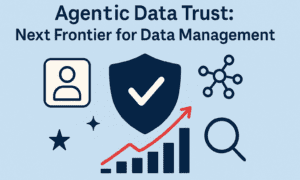In today’s digital age, data is at the core of every successful organization. The ability to effectively manage and utilize vast amounts of information has become a critical factor in driving business growth and innovation. This is where database development comes into play. A well-designed and optimized database system can unlock the true potential of data, enabling organizations to make informed decisions, improve operational efficiency, enhance customer experiences, and gain a competitive edge in their industry. In this article, we will delve into the intricacies of database development and explore its importance in modern business environments.
Building Blocks for Organized Data Storage
At its essence, database development involves creating an organized structure for storing data efficiently. Databases provide a structured way to store large volumes of information while keeping it easily accessible for analysis or retrieval purposes. By defining tables with appropriate fields and establishing relationships between them through keys or indexes, businesses can ensure that their data is logically organized.
A well-designed database schema allows for efficient storage and retrieval operations. It eliminates redundancy, minimizes inconsistencies, and enhances overall data integrity. With proper normalization techniques, such as breaking down complex datasets into smaller tables, database developers create an environment where data duplication is reduced, dependencies are managed effectively, and updates or modifications are executed seamlessly.
Efficient Data Retrieval through Query Optimization
One significant aspect of effective database development lies in optimizing query performance. Queries serve as powerful tools to extract specific sets of information from databases. By employing indexing techniques on frequently accessed columns,
tuning SQL queries, or utilizing advanced features like stored procedures, developers can significantly enhance query execution speed. Efficient query optimization not only improves response times but also reduces server load, allowing businesses to handle larger workloads without sacrificing performance. This translates into faster decision-making processes, real-time analytics capabilities, and improved user experiences.
Safeguarding Valuable Information
In an era marked by growing cyber threats and data breaches, database security is of paramount importance. Database developers play a critical role in implementing robust security measures to safeguard valuable information. This includes enforcing access controls, implementing encryption mechanisms, auditing user activities,
and regularly patching vulnerabilities. By following industry best practices and complying with relevant regulations, such as the General Data Protection Regulation (GDPR) or the Health Insurance Portability and Accountability Act (HIPAA),
organizations can instil trust among customers, protect sensitive data from unauthorized access, and mitigate potential legal or reputational risks.
Adapting to Growing Business Needs
As businesses grow, their data management requirements evolve accordingly. Database development enables organizations to create scalable solutions that can accommodate increasing volumes of data without compromising performance.
Developers employ various techniques like sharding, partitioning, or replication to distribute databases across multiple servers or clusters. These strategies allow for horizontal scalability, ensuring that databases can handle higher loads while maintaining optimal response times. Scalable database systems empower businesses with the ability to support expanding operations, analyse larger datasets,
and adapt quickly to changing market dynamics.
Bridging Applications and Databases
Effective database development goes hand in hand with application development. Databases serve as back-end storage for applications, enabling seamless integration between different software components. By designing databases that align closely with application requirements, database developers facilitate smooth communication
between front-end applications and back-end data storage. This integration empowers businesses by providing real-time access to accurate information needed for critical business processes such as order management, inventory control,
customer relationship management (CRM), or financial reporting.
Cloud-Based Database Solutions
The advent of cloud computing has revolutionized the way databases are developed, deployed, and managed. Cloud-based database solutions offer numerous benefits including flexibility, scalability, reduced infrastructure costs, and increased availability.
Database developers must stay up-to-date with emerging technologies to leverage these advantages effectively. By harnessing the power of cloud-based databases, organizations can scale their data infrastructure on demand, leverage advanced analytics capabilities, and improve accessibility for distributed teams. Cloud-based solutions also provide enhanced security measures, automated backups, and disaster recovery options, ensuring that valuable data is protected at all times.
In Conclusion
Database development serves as the backbone of modern data management practices. By investing in robust database systems, organizations unlock the true potential of their data, enabling them to make informed decisions, drive innovation, and gain a competitive edge. Efficiently structured databases allow for organized storage and retrieval operations, while query optimization techniques enhance performance and responsiveness. Security measures protect sensitive information from unauthorized access or breaches, scalable architectures accommodate growing volumes of data without sacrificing speed, seamless integration enables applications to utilize stored information effectively, and cloud-based solutions offer flexibility, scalability, and enhanced security features.
As technology continues to evolve rapidly, the role of database development becomes increasingly critical in managing the ever-expanding volumes of digital information. Organizations that prioritize expert database development strategies
will be well-equipped to navigate this new era of big data and capitalize on its immense potential for driving business success.



































